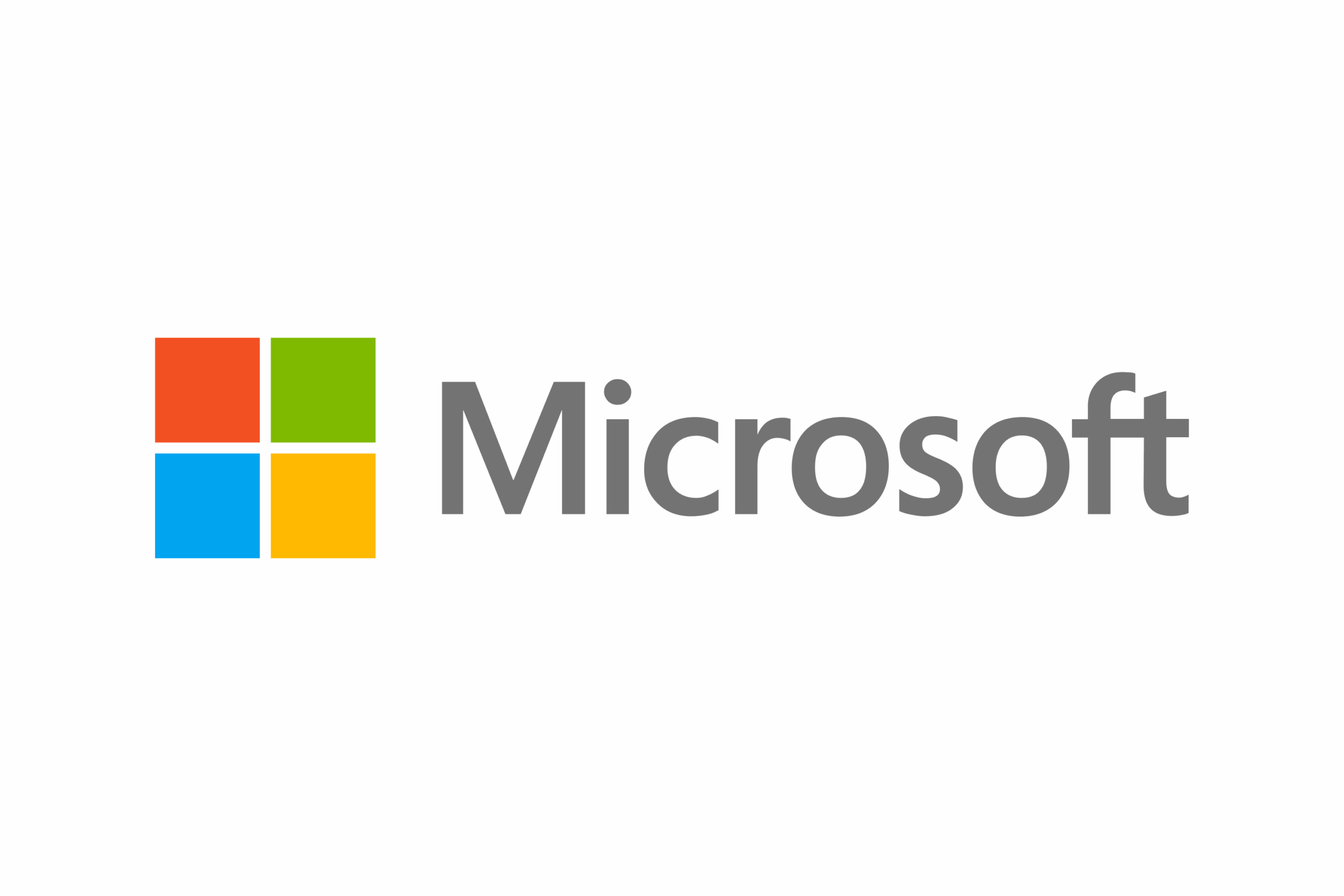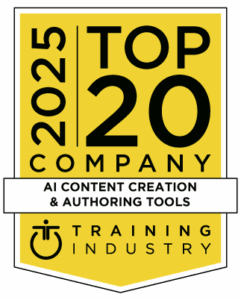
Microsoft Powers World-Class Customer Support With Localization
50% reduction in translation time and effort
200+ courses
localized into 5 languages
50% reduction
in time and effort to translate training content
6 days
to localize a course—down from 30
Microsoft leads meaningful technology innovations that contribute to a brighter, better world for all. The global technology and software development leader produces the Windows operating system, the most widely used desktop operating system worldwide.
The organization employs 220,000 people and prides itself on delivering exceptional experiences for all its users in 190 countries. Its Customer Service and Support (CSS) team is integral to this, always working to meet users where they are, regardless of disability, geography, or language.

Industry: Technology/Software Development
Location: Headquartered in Redmond, WA, with employees around the world
Size: 220,000+ employees
Learning audience: Customer Service and Support team members
Learn more about: Localization
The Challenge
Microsoft needed a faster, more seamless localization process for global customer support training
Microsoft’s Customer Service and Support (CSS) organization has localized its training for years, enabling agents around the world to support its international customer base.
“Microsoft has employees and vendors across the globe,” says Viorel Jigman, Senior Learning Manager, noting that agents support local markets in Asia, Latin America, and other regions. “Not all of them speak English, and not all of them are required to speak English. It’s important to have our training localized for them.”
Until recently, Microsoft’s localization process was very manual work, with lots of toggling between documents and Rise to create training. Course authors had to track multiple resources and project manage translators. This process was labor- and time-intensive, and often led to technical and quality issues.
For example, the team experienced font issues with Korean and Japanese translations, and translating certain file types required specialized tools that made the process more cumbersome. The process caused training delivery delays of up to a month for non-English speakers.
“It worked, but it was a challenging process—painful at times,” says Jigman.
Jigman reached out to the Articulate team, hoping to optimize the translation process, and began exploring Articulate Localization as a possible solution.
The Answer
With Localization, the end-to-end process went from 30 days to 6
In order to move forward with Localization, Microsoft’s team first needed to ensure that any machine translations of their training were handled in accordance with the organization’s robust privacy and security standards.
“Articulate provided all of the certifications, details, data privacy, and handling processes internal teams needed to review and vet the Localization tool to ensure our data would be properly handled,” says Jigman. “We got the green light.”
Since getting started with Localization, Jigman’s team has localized roughly 200 courses for the CSS team into 5 languages: Spanish, Brazilian Portuguese, simplified Chinese, Japanese, and Korean. The team appreciated the easy collaboration process with their human reviewers—particularly seeing changes reflected in context. And having all their tools in one platform means no more handling external files for an even more seamless process.
Finally, high-quality machine translations have significantly shortened the end-to-end localization process, which includes translation, validation, approval, and publishing. While the previous approach took 30 days from start to finish, localization now takes just 6 days.
Recently, Jigman’s team completed an essential tool migration project, developing and translating 16 trainings into 5 languages in under a month. The goal: to ensure no negative impact on business KPIs throughout or after the migration. “Over 4,000 learners completed the training before the new tool launched,” he said. “Our learners got the skills they needed on time, and KPIs were not impacted at all.”
Unlocking Human Potential
Microsoft removes barriers for learners around the world with its training
Today, multiple teams at Microsoft use Localization to create training for global audiences where English might not be the default spoken language. “Regardless of the team we work on, without localizing our training, we cannot skill our learners and achieve our target business objectives,” says Jigman.
Since launching its new Localization process, Microsoft has seen a 50% reduction in the time and effort required to validate translated training content. This makes it easier for all agents—regardless of location or language spoken—to receive the training they need simultaneously.
For Jigman, this key aspect of accessibility helps set Microsoft apart as a global tech leader. “We strive to make everything that we do fully accessible,” he says, noting that this doesn’t just mean making content accessible for people with disabilities—something Microsoft does with all its training.
“We need to consider language as one of the potential barriers to taking our training,” says Jigman. “Being able to localize training, and do so at a faster pace, removes a major accessibility barrier for our learners.”
Localization makes Microsoft’s customer service and support training accessible for agents around the world, allowing learners to get the most value out of training, regardless of the language they speak.
Articulate provided all of the certifications, details, and data privacy and handling processes needed for our internal teams to review and vet the Localization tool to ensure our data would be properly handled.
Loved by customers and industry experts






*Data provided by Microsoft, 2025. This content is based on reported experiences from an actual customer and is provided solely for informational and illustrative purposes. In some cases, we have edited and reprinted feedback; however, in such cases, we did so only to shorten the text and not to edit the nature of the feedback provided. For confidentiality purposes, some information has been anonymized. This content is not intended as a promise or guarantee for any use by current or future customers. Results may vary substantially for each customer.
Articulate, Articulate 360, Storyline, Rise, and Localization are either registered trademarks or trademarks in the United States and other relevant countries.
You may also like

Tory Burch Scales Global Retail Training With Articulate 360 AI and Localization
Learn how fast-paced global retail brand Tory Burch trains its team to deliver white glove service with Articulate 360 and Localization.

